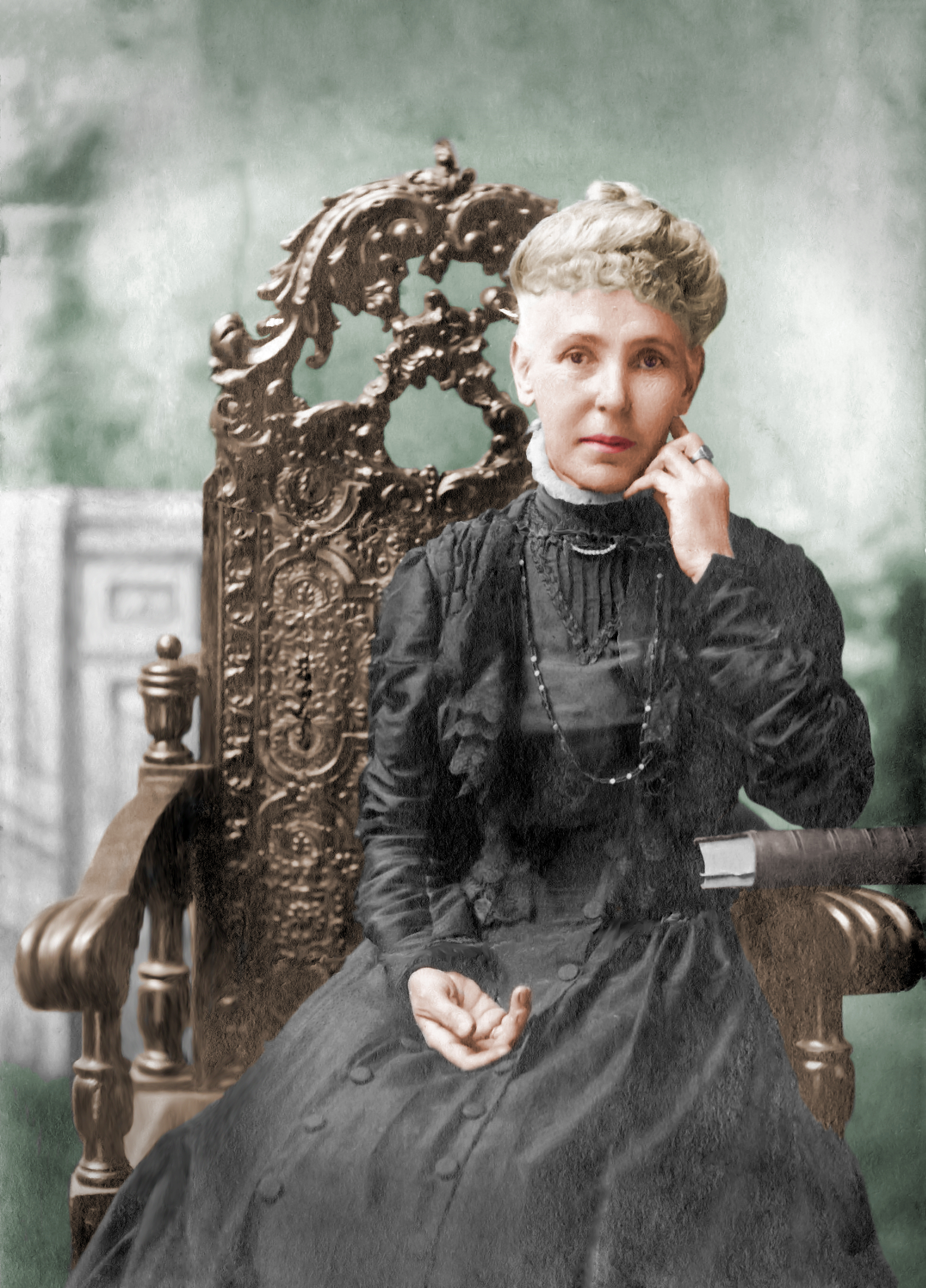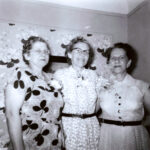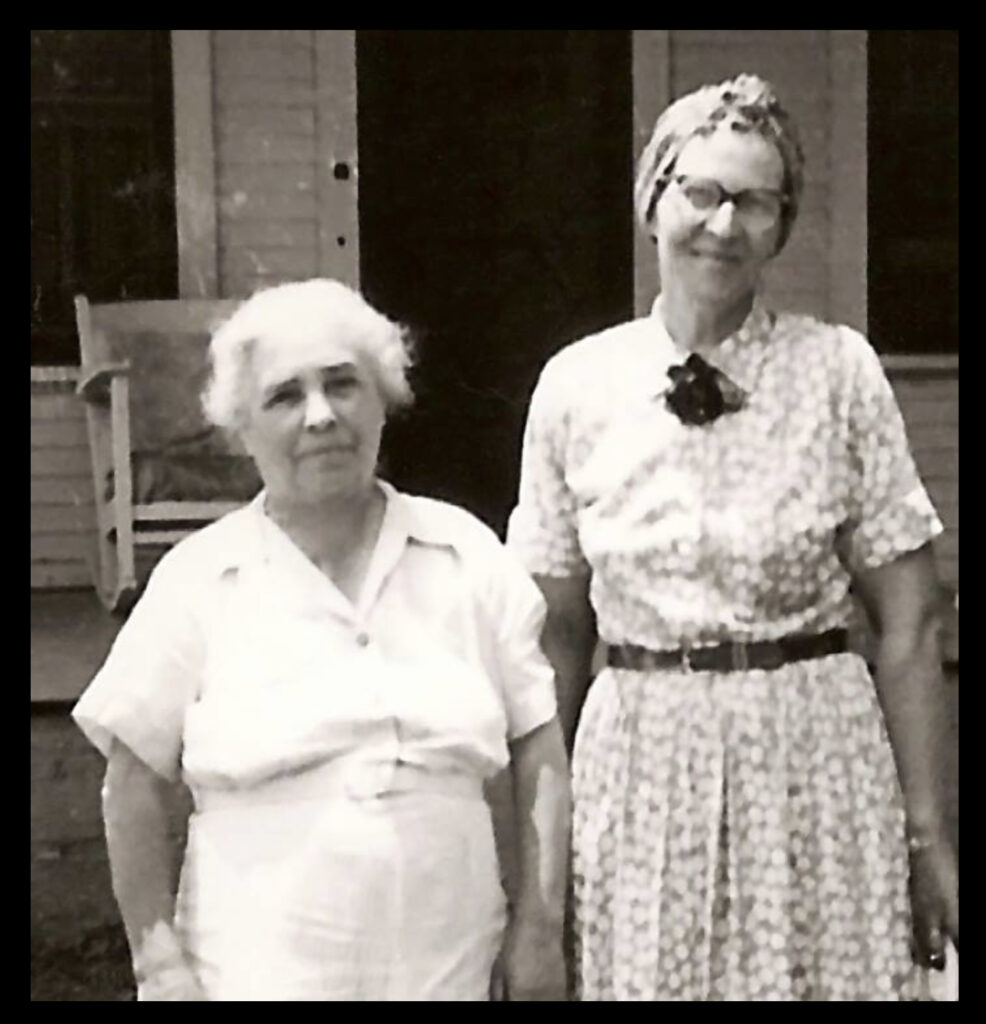Harriet Lillian Ash was born on August 6, 1860, in the small town of Union Mills, La Porte County, Indiana. Union Mills, Indiana, in 1860 was a humble community, like many small towns of its time. It had been settled by European pioneers who had ventured into the area during the early 19th century. This region was once inhabited by several Native American tribes, including the Potawatomi, who had a significant presence in Indiana.
Harriet’s early years were marked by the presence of her parents, James and Esther Ash. However, her father’s life took a tragic turn as he fought in the Civil War with the 87th Indiana Infantry, Company H. He passed away in April 1864, shortly after being discharged. The exact cause of his death remains unclear, but it serves as a reminder of the sacrifices made during a tumultuous period in American history. The 87th Indiana Infantry did see combat during the Civil War, and its soldiers faced various challenges on the battlefield.
At the age of 17, Harriet embarked on a new journey by marrying Francis A Deputy on October 10, 1877, in Blue Township, Pottawatomie County, Kansas. Their life together began in Grant, Riley County, Kansas, as they set out to build a family of their own. In 1880, they resided in Grant, where Francis worked as a farmer, and Harriet managed their household. Their small family was further enriched by the arrival of their daughter, Catherine.
Grant, Riley County, Kansas in 1880 was a rural and agricultural community, much like Union Mills, Indiana. Farming was a significant occupation for the residents, and it was a time when communities were closely-knit, and people depended on each other for support.
Tragedy struck again when Francis passed away on August 9, 1893, leaving Harriet widowed. She relocated to Hiawatha, Brown County, Kansas, where she worked as a nurse to provide for her family. This period also saw the loss of her daughter, Rosella Deputy, in 1901, during a time when various challenges and health issues could affect families.
By 1905, Harriet had moved to Grand Junction, Colorado, and was making a living as a dressmaker. Her son William was living with her, and her other son Frank, who worked as a boilermaker, lived nearby.
Working as a dressmaker, as Harriet did, involved creating and altering clothing, primarily for individuals. This profession required a high level of skill and attention to detail. Dressmakers would typically work with clients to design, sew, and tailor garments to fit perfectly. In the early 20th century, this work was often done by hand or with the help of sewing machines. Dressmakers would stay up-to-date with the latest fashion trends and create custom clothing items, including dresses, suits, and other attire. It could be both a creative and practical profession, catering to the unique fashion needs and preferences of their clients.
Harriet’s relocation from Colorado to Arizona marked another significant chapter in her life. The transition likely brought her from the scenic landscapes of Colorado to the arid beauty of Arizona. This move might have been prompted by various factors, including family, economic opportunities, or personal preferences. The change in location meant adapting to a different climate, lifestyle, and possibly new social circles. Harriet’s resilience and adaptability were evident as she established herself in Phoenix, Arizona, and embraced her role as a merchant of wallpaper and paints, showcasing her ability to navigate life’s twists and turns with determination and grace.
The influenza pandemic of 1918 took a toll on Harriet’s family as her son William and his wife Lettie Maude Routh succumbed to the flu, leaving their child, Delma, in Harriet’s care. The flu pandemic of 1918 was a global catastrophe, and Arizona was no exception.
Harriet’s journey continued into the 1920s, where she had settled in Phoenix, Arizona, with her granddaughter Delma. She worked as a merchant of wallpaper and paints, an occupation that might have reflected her creative talents.
In 1925, Harriet was living in Portland, Oregon, working as a dressmaker. Her life took another turn in 1930 when she moved to Milwaukee, Clackamas County, Oregon. Her son Frank Deputy and his family also resided there. Frank worked as a switchman for the railroad, highlighting the significance of the railway industry in their lives during that era.
The 1940s brought another loss to Harriet, with the passing of her son Frank, who had previously been known as William. His death certificate revealed an intriguing story of identity. It reads “WILLIAM” and faintly behind that, “FRANK”. Frank had been a railroad man, and it is during this time that he and his wife, Mildred, divorced.
The memories and stories shared by family members, such as Larry A Deputy and Gail Morrison, paint a vivid picture of a family that faced many challenges but remained close-knit and resilient through the years. Harriet’s life was marked by personal losses and the ever-changing landscape of early 20th-century America.
Larry A Deputy’s memories offer a personal and insightful perspective on the Deputy family’s history. He shared valuable recollections of his family, particularly about his grandfather, Frank Ash Deputy. According to Larry, Frank was a railroad man who lived in King Hill, Idaho, where Frank’s father, William, and Larry’s father, Frank Allen, were born. This insight into the family’s history sheds light on their connections to the railroad industry, which was a significant part of their lives during that era.
Furthermore, Larry mentions that Frank Deputy, his grandfather, later went by his brother’s name, William. This name switch adds an intriguing layer to the family’s story, highlighting the complexities and unique dynamics within the Deputy family. These kinds of personal memories and stories provide a rich tapestry of family history, offering a deeper understanding of the lives, challenges, and connections that shaped the family’s journey over the years.
Gail Morrison’s memories provide a glimpse into the family’s more recent history and experiences. He recalls attending his grandmother’s last birthday party in an assisted-care facility in Marysville, Washington. This memory reflects the importance of family gatherings and the bonds that tie generations together. Sharing fond recollections of the fun they had at the party, Gail’s memories emphasize the enduring love and togetherness within the family.
Attending the celebration with his mother, sister, and wife, Gail’s presence at the party represents a continuation of family traditions and the importance of being there for one another during significant moments in life. These memories capture the essence of family connections and the cherished moments that create lasting bonds, even in the face of life’s challenges and changes.
Harriet’s final days were spent in an assisted-care facility in Marysville, Washington. Her family, provided her with companionship and support. It was a period of reflection and shared moments as her family ensured her comfort during her stay in the facility. Harriet’s journey was marked by personal losses and the ever-evolving dynamics of family life, and her story remains a testament to resilience and the enduring bonds of family.





